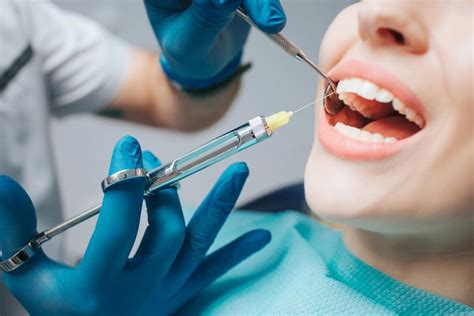12 Dental Anesthesia Tips While Pregnant

The journey of pregnancy is a remarkable and life-changing experience, filled with numerous responsibilities and precautions to ensure the health and well-being of both the mother and the baby. One crucial aspect that often requires attention during this period is dental health. Regular dental check-ups are essential, but they can become more complex when considering the safety of the fetus. Dental anesthesia, in particular, is a common concern among pregnant women, as it’s often necessary for various dental procedures. Here are twelve dental anesthesia tips that pregnant women should know, to help navigate dental care safely and effectively.
Firstly, consult your obstetrician before any dental procedure. It’s crucial to get a thumbs up from your doctor, especially if you’re in your first trimester or have any complications. This ensures that any dental work, including the use of anesthesia, is safe for you and your baby. Your obstetrician can provide valuable insights and recommendations based on your specific health conditions and the stage of your pregnancy.
Secondly, choose the right dental clinic. Not all dental clinics are experienced in treating pregnant women. Look for clinics with obstetric dental care experience. They will understand your situation and provide the best possible care, minimizing risks associated with dental anesthesia and other procedures.
Thirdly, inform your dentist about your pregnancy. This is paramount for your safety and the baby’s. Your dentist needs to know how far along you are and any medications you’re taking. This information helps them decide the best course of action and whether dental anesthesia is necessary and safe.
Fourthly, consider the timing of your dental procedure. The second trimester (between 13 and 26 weeks) is often considered the safest time for dental procedures during pregnancy. This period minimizes potential risks to the fetus and ensures that any necessary dental work, including the use of anesthesia, can be performed with relative safety.
Fifthly, understand the types of dental anesthesia. There are several types, including local anesthesia (like lidocaine), conscious sedation (like nitrous oxide), and general anesthesia. Local anesthesia is typically the safest option during pregnancy, especially when used in minimal doses and under the supervision of an experienced dentist.
Sixthly, be aware of the risks and benefits. While dental anesthesia is generally safe, there are risks, especially with certain types. Discuss these with your dentist to make an informed decision. It’s also important to weigh the benefits of the procedure against the potential risks, considering the impact on your oral health and overall well-being.
Seventhly, ask about pain management alternatives. Sometimes, procedural steps can be adjusted to minimize pain, reducing the need for anesthesia. This approach can be particularly appealing to pregnant women who wish to avoid anesthesia whenever possible.
Eighthly, review your medical history. Certain medical conditions or past reactions to anesthesia can impact your dentist’s decision. Being open about your medical history ensures that your dentist can make the best choices for your care, taking into account any specific considerations related to your health and pregnancy.
Ninthly, follow post-procedure instructions carefully. After receiving dental anesthesia, it’s crucial to follow your dentist’s advice on recovery, especially if you’re driving or caring for children. This ensures your safety and the safety of those around you, minimizing any potential complications.
Tenthly, stay hydrated and have a companion. Sometimes, dental procedures can leave you feeling dizzy or disoriented. Having someone with you and staying hydrated can help mitigate these effects, providing an added layer of safety and support.
Eleventhly, be cautious with medications. If you’re prescribed any medication after your dental procedure, ensure it’s safe for use during pregnancy. Your dentist and obstetrician should be in agreement on any medications, balancing the need for effective pain management with the safety of your pregnancy.
Twelfthly, don’t delay necessary care. While it’s natural to have concerns, avoiding necessary dental procedures can lead to more severe problems. Regular dental care is essential for your health and the health of your baby, and addressing any issues promptly can prevent more invasive and risky procedures later on.
Is dental anesthesia safe during pregnancy?
+Dental anesthesia, particularly local anesthesia, is considered safe during pregnancy when used appropriately and under the guidance of a qualified dentist. However, it's crucial to discuss the risks and benefits with your dentist and obstetrician to make an informed decision.
Can I have dental work done during my first trimester?
+While it's generally recommended to avoid non-essential dental procedures during the first trimester due to the critical developmental stages of the fetus, emergency dental work may be necessary. It's essential to consult with your obstetrician and dentist to assess the urgency and safety of any procedure.
How can I manage dental pain during pregnancy without anesthesia?
+There are several alternatives to anesthesia for managing dental pain, including over-the-counter pain relievers that are safe for use during pregnancy, cold compresses, and adjusting your diet to avoid triggering or exacerbating pain. However, it's vital to consult with your dentist to find the most appropriate and safe method for your specific situation.
Are there any long-term effects of dental anesthesia on the fetus?
+Research indicates that when used appropriately, dental anesthesia does not have significant long-term effects on the fetus. However, it's crucial to follow all guidelines and recommendations from your healthcare providers to minimize any potential risks.
Can I have a tooth extracted while pregnant?
+Tooth extraction can be performed during pregnancy if it's deemed medically necessary. The decision should be made in consultation with your dentist and obstetrician, considering the health implications of not performing the extraction versus the potential risks associated with the procedure and anesthesia.
How often should I visit the dentist during pregnancy?
+It's recommended to maintain regular dental check-ups during pregnancy, as hormonal changes can affect your oral health. Regular visits can help prevent complications and ensure any issues are addressed promptly and safely.
In conclusion, while dental anesthesia during pregnancy requires careful consideration, it can be a safe and necessary part of maintaining your oral health. By following these twelve tips and staying informed, you can navigate dental care with confidence, ensuring the best possible outcomes for both you and your baby. Remember, open communication with your healthcare providers is key to a healthy and happy pregnancy.
